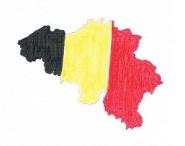 Something’s fishy
Something’s fishy
Something is fishy in the state of Homeopathy. Although this may be called a worldwide phenomenon, it plays out differently in each country. Here is the story of how in Belgium an apparent triumph for homeopathy may actually turn out to have serious side-effects.
Background
It all started at the end of last century when complementary medicine, or CAM, became more and more popular with the public. Europe wanted on the one hand to safeguard patients’ access to the health care of their choice and on the other hand protect patients’ safety i. Following resolution 1206, national governments set themselves the task of implementing the resolution into their law.
In Belgium negotiations between stakeholders (universities, CAM practitioners, and national health insurance organizations) led to the Colla Law (called after Marcel Colla who was the initiator of the legalizing process for homeopathy and three other CAM practices).
However, for a Belgian law to come into vigor, practical resolutions have to be worked out in a decree and signed for approval by the King. No governing party could muster the political courage to start this procedure, so for years the law was slumbering silently and homeopathy, together with the other three CAM’s, further prospered, profiting from the legal grey area. That is, until in 2011 the Minister of Health Care ordered a report from the Expertise Center to investigate the CAM’s covered by the Colla Law. And the rest, as they say, is history. The result of all the legal procedures was that from May 12, 2014 on, only MD’s, dentists and midwives are allowed to prescribe homeopathy. In Belgium, nobody can call him or herself a homeopath, as in ‘an independent health care professional practicing homeopathy’.
Homeopathy in crisis
This resolution meant different things to different people and organizations, as appears from the many court cases that followed the publication of the decree. Doctors-homeopaths generally were enthusiast; university medical professors were outraged; professional homeopaths saw themselves ruined. Transitory measures are dubious, vague and unsatisfactory. Every homeopathic soul asked the same question: what has happened to our homeopathy – so flourishing only 10 years ago and in shreds today? What can we learn from this and how can we make it better again?
Just on a side note however, it is not only homeopathy that is suffering. Other alternative therapies as acupuncture and osteopathy are going through the same process in Belgium and elsewhere. But also conventional medicine has its problems. Just think of the bacterial resistance to antibiotics, the side-effects of vaccinations, the increased consumption of psychopharmacological drugs and the threat of epidemics like Ebola, Leptospirosis or the Spanish Flu.
Apparently our Western healthcare system is seriously challenged. And just a reminder: not only healthcare, but also economics and the wider social fabric of our Western world are at best reinvented at this very moment. Just think of all the recycle, freecycle and upcycle actions, civil movements, tiny houses, earthships, ecological living, organic food stores, all sometimes small scale initiatives that together have a real impact on our society.
But in the framework of this article we’ll stick to the tribulations of homeopathy that can be looked at from a systemic and/or a homeopathic point of view.
System theory applied to the crisis
Confronted with the new Belgian regulations for homeopathy, it became soon clear that the problem was bigger than a quarrel between doctors and therapists on who was allowed to do what and on what basis. The problem was indeed situated on a higher systemic level and it proved rewarding to apply systems theory on homeopathy’s current situation.
Especially helpful are the writings of Meadows (Meadows & Wright, 2009). Homeopathy had gotten itself into a few negative spirals.
The first one is what Meadows calls ‘the escalation trap’. When one party of opponents of all sorts was shouting that ‘homeopathy doesn’t work, is a fraud, is quackery, impossible, placebo…’, obviously it doesn’t help to shout back that ‘thousands of cured cases clearly show the working of homeopathy, thousands of scientific studies prove its validity’ and so on. As all homeopathic organisations can testify, there was no way to counter the homeopathy bashing campaign and its disastrous effects. The only benefit that came of it was that homeopaths of all feathers got united and organised to fight the adversity, however, to no avail. Today all homeopaths in the UK, Holland, Belgium, France and Australia suffer a serious setback due to bad publicity and corresponding legislation.
The anti-homeopathy campaign initiated another reinforcing feedback loop. The more and uglier the picture of homeopathy painted in the press, the more people, even lifelong consumers of homeopathy, turned away. More and more homeopaths had to close their practises; courses closed and less ‘defenders’ of the alternative practise stood up to the attacks of the so-called scientific counterparty. With virtually no practitioners and no courses left, homeopathy is bled to its death, so to speak.
Why was the Belgian society of professional homeopaths, arguably the losing party in this situation, so unsuccessful? It must be due to the fact that all the society’s potential connections with the ‘outer’ world were lacking. No relationship had been built with the course providers, with other CAM practitioners or their professional societies, with experts in the CAM field, with politicians that are sympathetic to CAM practises, not even with its own members, apart from an annual invitation to the AGM and a reminder to pay the fee. The only process going on was on a legal level, filing the appropriate forms with the authorities in due course.
This has proved to be largely insufficient. With no support from a large public, from experts on all levels of society, from other CAM organisations, from politicians in powerful places, the society’s agenda was granted no vote, no voice and was simply ignored, even if they fulfilled all the legal requirements. It was a very rude confrontation with a societal and political reality.
The result was that homeopathy today still is regressing and actually is moving towards entropy.
To paraphrase a very famous homeopath (in a difficult case): ‘so what to do?’
First of all getting out of the ‘yes-no’ game: no public discussions on the scientific issues. If anyone wants to argue, first read the 250 or so books and the 4000 or so research articles and then come back. Second on the agenda, find an unsuspected niche or outlet for the homeopathic philosophy and wait for cracks in the dominant system (McIntosh, 2004).
Turning again to Meadows for inspiration, it becomes quite clear that it’s best to tackle the issue on a higher level. The issue at hand is the freedom of choice, right on information, and autonomy of the public to decide what therapy they want and to be able to get it, alternative or conventional. Therefore it is necessary to find support with the public, ask for help from other CAM organisations, and refer to European law. Small steps have been taken in that direction. However it is a long way to go and homeopathy may be running out of time and breath.
The homeopathic point of view
Homeopathically we ask ourselves: what is to be cured? This is a particularly hard question to answer. Some would argue homeopathy was ill because of internal discord – about the validity of the homeopathic methods, the ‘new’ remedies, the ‘new’ miasms, the accuracy of the repertory… Actually homeopaths seem divided over almost every aspect of their method, in spite of attempts for reconciliation – for instance the initiative of the HAT, urging homeopaths to speak with one voice. Others blamed the lack of solid evidence and serious scientists for the crisis. Others again have held the poor communication with other fields in medicine responsible for homeopathy’s spiraling down or the poor or even non-existent marketing strategies.
Since we claim to be holistic, true to our method we should take all these factors into account and search for the underlying mechanism, energy or sensation. Could it be a matter of evolution? A somewhat recent hypothesis states that survival is not a matter of the fittest, nor of best adapting to changing situation, but of simply generating more energy than is needed by the system (England, 2013). In spite of private successes with high patient satisfaction, for all the reasons mentioned higher, homeopathy has not succeeded in spreading this message beyond its own field of action. No offspring, no mingling with other healthcare-DNA, a bachelor doomed to die the last of his line? Or is s/he?
What’s next?
Can crisis turn into catharsis? Another recent evolution theory (Michod & Herron, 2006) quite popular in healthcare, has it that in order to survive and evolve, simpler units of life have to gang up and cooperate, unite in a complex system that is more than the sum of its parts. So maybe the remedy for homeopathy is not in fighting or repressing the symptoms, but in teaming up with other sections in healthcare, wellness and conventional medicine, and working together to solve the problems arising on a worldwide scale. Teaming up would not mean that one would be subordinate to the other. It would be an action experiment for all ‘sides’. Homeopaths and other healers would learn to play in an orchestra instead of playing solo. Academically trained medical professionals would learn to expand their repertory and widen their horizons. All would be expert and student at the same time until a new equilibrium is reached, a target becoming extremely urgent in the interest of the patient.
i http://assembly.coe.int/Main.asp?link=/Documents/AdoptedText/ta99/ERES1206.htm England, J. L. (2013). Statistical physics of self-replication. The Journal of Chemical Physics, 139(12), 121923. doi:10.1063/1.4818538
McIntosh, A. (2004). Soil and Soul: People versus Corporate Power. Aurum Press Limited. Retrieved from https://books.google.be/books?id=l_z7AAAACAAJ
Meadows, D. H., & Wright, D. (2009). Thinking in Systems: A Primer. Taylor & Francis. Retrieved from https://books.google.be/books?id=oYzyRP4WxBMC
Michod, R. E., & Herron, M. D. (2006). Cooperation and conflict during evolutionary transitions in individuality. Journal of Evolutionary Biology, 19(5), 1406–1409. doi:10.1111/j.1420-9101.2006.01142.x
About the Author:
 Christel Lombaerts (°10.11.1955) Classical Homeopath, studied homeopathy at the Center of Classical Homeopathy (CKH) in Leuven, Belgium and with a number of renown homeopaths such as Anne Vervarcke, Rajan Sankaran, Alex Leupen, Jenni Tree and many others. She got a MSc degree in Education Sciences at the University of Antwerp and an MSc Homeopathy at the UCLAN.
Christel Lombaerts (°10.11.1955) Classical Homeopath, studied homeopathy at the Center of Classical Homeopathy (CKH) in Leuven, Belgium and with a number of renown homeopaths such as Anne Vervarcke, Rajan Sankaran, Alex Leupen, Jenni Tree and many others. She got a MSc degree in Education Sciences at the University of Antwerp and an MSc Homeopathy at the UCLAN.
She ran the CKH from 2005 till 2013 and currently is a trustee at the CKH. Her main concern today is advancing qualitative homeopathic training for healthcare professionals. She is also acting as a representative for homeopathic practitioners in meeting other CAM and conventional healthcare professionals.

The key to future is Integrative Medicine where there are new perceptions of health from CAM and concepts of conventional medicine via collaborative research & cooperative work model
Posted by Dr. Nancy Malik | 16/01/2016, 1:49 PMVery much agree! The different systems and approaches have to complement rather than oppose each other!
Posted by Uta Mittelstadt | 16/01/2016, 8:29 PM